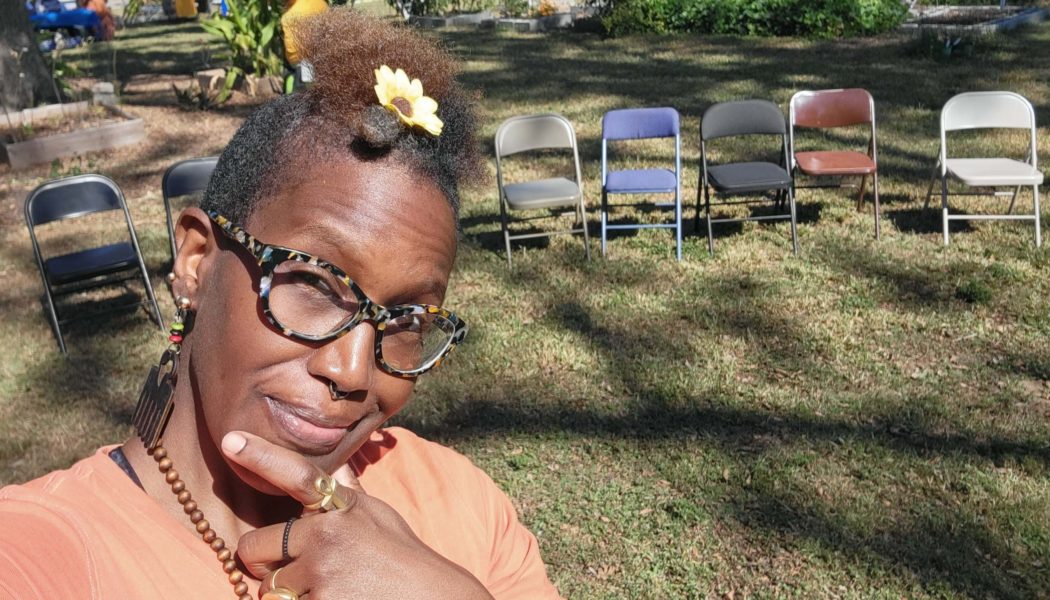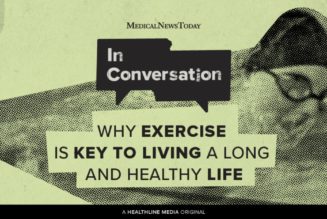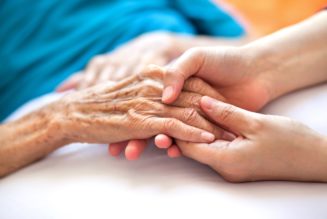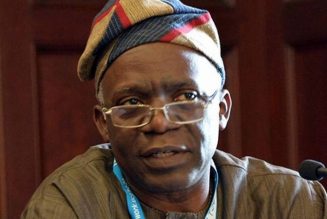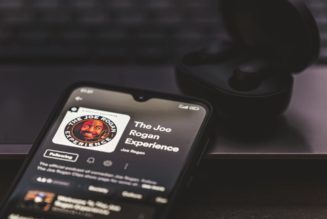TOPEKA — Sitting beside a camera in 2020, listening to Black women recount their stories of finding strength while battling health disparities, Chris Omni knew Black joy not only needed to be celebrated but brought to the forefront of health conversations.
The women telling their stories were part of Omni’s “Chocolate Sunshine: Shining a Light on Black Women’s Health.” The original plan was for the women’s stories to be brought on stage, but with the pandemic, they were instead recorded and put online.
“I’m listening to their stories in 2020, thinking about what’s going on in the world, but they’re still sitting there beautiful, smiling, poised, sharing about their journeys of hypertension, diabetes, vision difficulty and obesity,” Omni said. “The world is crumbling around us, but there’s joy in front of me. That was that pivotal moment of we have to focus on the joy.”
When researching Black women’s health after her mother died of cancer in 2016, Omni found an abundance of “sad stats” showing how likely Black women are to be unhealthy and diagnosed with terminal illnesses. It’s easy to internalize such statistics, Omni said, to allow them to overshadow all of the positive attributes of Black women. But, through her studies, she began to understand “Black joy,” and found a passion for talking about the positive rather than focusing on the negative.
To her, happiness stems from an outside source, while joy is more powerful and comes from within. Omni said Black joy is a statement, stride, resistance, rest and anything an individual needs it to be, because “Black joy is the best.”
“Black joy becomes a collective-self, positive emotional state that honors authenticity,” she said. “A collective-self ideology is a system of ideas and ideals that recognize the value of one’s autonomy while simultaneously celebrating the autonomous and authentic contributions of other Black people.”
Omni started studying public health to do something about the overflow of negativity, earning her master’s degree from Kansas State University in 2019 and her doctorate in art education from Florida State University in 2023.
Before earning her advanced degrees, Omni worked in public health in Kansas for almost 30 years, doing personal training, group exercise and community mobilization.
Now, Omni is working to make Black joy a priority in health — and fill the gaps in a system primarily talking about everything wrong in Black women — by sharing Topeka women’s stories.
“I want people to understand that, even though that is the truth statistically, that 100% of us, even if we do have a chronic disease, still have moments of joy,” Omni said. “And what I’m moving forward in the space of being Dr. Omni is that Black joy is the new social determinant of health.”
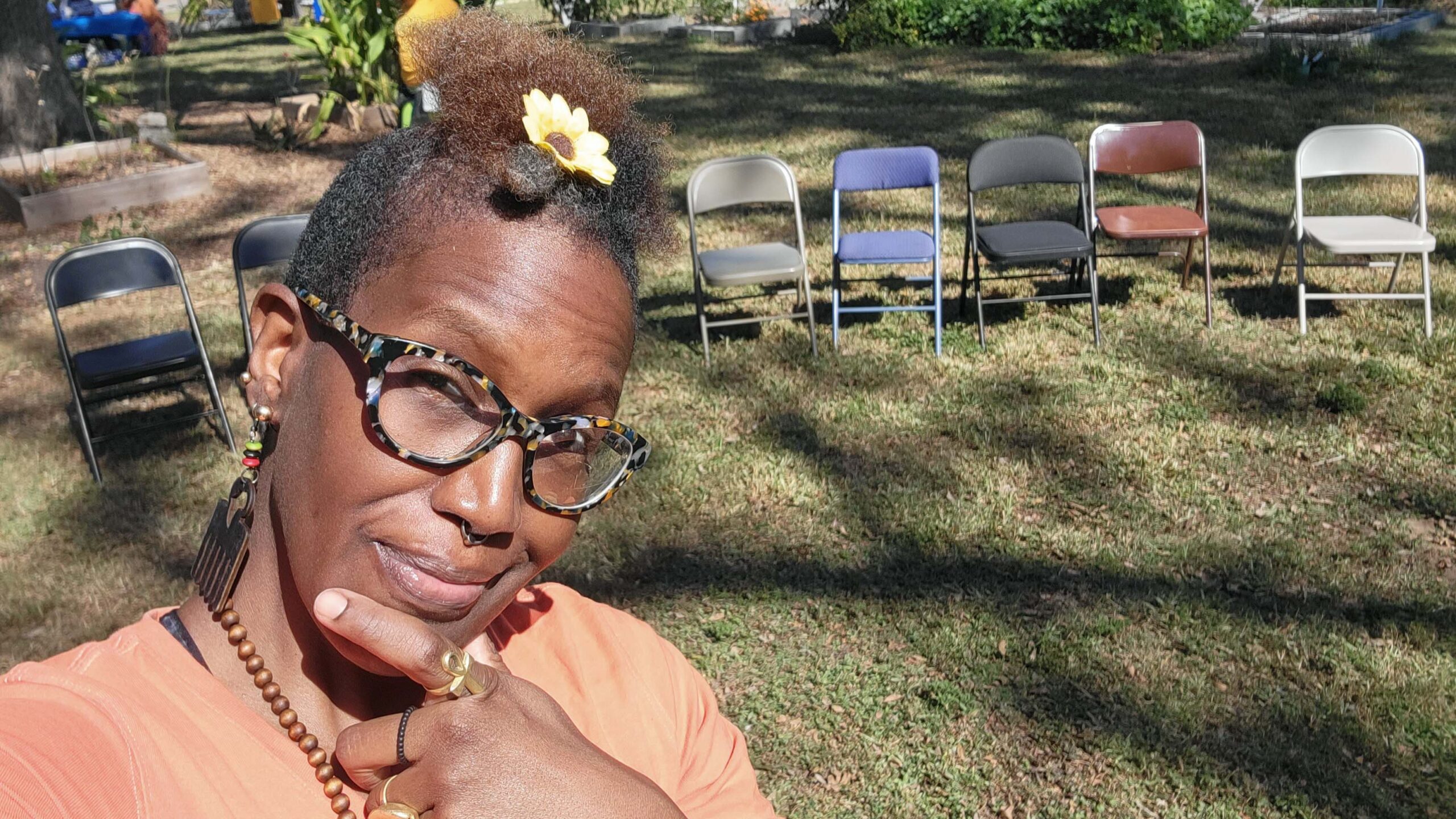
A capital concern
Omni will spread her research in the fall, teaching a class at FSU about health disparities that disproportionately affect Black women through the lens of about 10 Black women in Topeka.
Omni said she is making Black women’s health a capital concern by moving from the capital of Kansas to Tallahassee, the capital of Florida.
“I get to bring everything that’s right with Black women into the space, and this conversation, with the next generation of public health professionals so that they can now look and say, ‘Yes, you’re the statistics, but what are the stories,’ ” Omni said. “I need the entire world to know that Black joy is a part of our narrative, and Black joy helps with addressing the issues related to the health disparities and the complications.”
Deborah Dawkins is featured in the section on obesity.
Dawkins said she has never been thin a day in her life. Nine pounds at birth, she weighed more than 100 pounds in third grade.
At 12 years old, she was 200 pounds and joined Weight Watchers, successfully losing about 60 pounds. Because she was unable to hit the weight loss threshold, she did not qualify for parts of the program allowing her to learn how to keep the weight off.
Dawkins has cycled between losing and gaining weight since.
Now, Dawkins is the director for the East Topeka Senior Center and values healthy eating and exercising to promote longevity. She said she exercises almost every day through aqua and land activities such as Zumba.
“It’s probably gonna be a lifelong challenge,” Dawkins said. “It’s not like I’m just gonna lose and be thin for the rest of my life. I know that’s not gonna happen, but I know I can be better.”
Dawkins said doctors often make assumptions about what she is eating and why she is overweight. She said some of the awareness of Omni’s projects was self-advocacy when doctors put them in a box, like assuming what their diet consists of because they are Black.
JoVonka Marks, a social worker in Topeka, also is highlighted in the course. She too has faced doctors who assume reasons she is overweight. She has been told it’s because she overeats, when she really doesn’t.
Marks was diagnosed with diabetes in 2000 after experiencing extreme symptoms such as falling asleep behind the wheel and whiteout vision.
She used to hide these symptoms from everyone except her family and medical professionals, until she met Omni and began participating in the projects. Now, she is more comfortable sharing her story and motivated to stay active and healthy.
“At this point, it’s the healthiest I’ve ever been because of the steady rise that’s coming out of wanting to actually do right by making moves, and eating right, and such like that,” Marks said.
A1C tests are a way to measure blood sugar levels. A 6.5% reading indicates an individual has diabetes, according to the Centers for Disease Control and Prevention.
At her highest, Marks said she had about a 16% A1C reading. Now, she maintains a “liberating” 7%, although she doesn’t want to stop there. Her goal is to continue living a healthy lifestyle in the hopes of getting off medication.
Like Dawkins, Omni and her projects have helped Marks advocate for herself with doctors. If she is told to start a certain medication she feels she can avoid, she now speaks up and works to fix the issue naturally. She said before Omni, she would have probably taken the medication.
To Marks, Black joy means being mentally stable and finding inner peace, humble confidence, and self worth that allows for careers, hobbies, partners and other things that bring joy.

Being healthy for the next generation
Throughout Omni’s time promoting Black joy and wellbeing, she has developed a variety of programs and campaigns. During the “Dear Black Women” section of “Chocolate Sunshine,” Dawkins liked how Black women of all ages were able to come together and focus on their mental health. Omni also led a campaign about taking a CapeBreak.
“We try to be superwomen and carry everything and hold back about our health and stuff, and this was taking a moment to say take care of yourself,” Dawkins said. “So you can be around for your kids or for my case, grandchildren.”
Being present for her children is one reason Laura Cluke, a Topeka music teacher featured in the class, works to stay healthy.
In 2005, Cluke gave birth to her first daughter, Camille, whom she described as her “miracle baby.”
Six years earlier, Cluke experienced a failed pregnancy because of diabetes. Cluke said it was difficult to think about how her habits could have contributed to the loss of her unborn child, but it helped to start focusing on making healthy choices.
She said she craved healthy food during her pregnancy with Camille.
“I don’t know if that was a gift from God or not, but things that were junk food made me ill,” she said.
Cluke wasn’t diagnosed with diabetes until the loss of her first pregnancy, but the disease ran in her family, with her grandmother and mother diagnosed.
Joining Omni’s projects and being a part of the groups was motivating, Cluke said. There was no judgment in the community, and Omni helped her realize it was OK if she fell off, as long as she was able to get back on course and try again.
Cluke said Omni gave her a reset that helped her be more health conscious and pay attention to details such as the labels on food.
“That helped me want to be there for my children and grandchildren, and thinking of it in that perspective,” Cluke said. “That I need to take care of me, so I can take care of them and be there for them.”
In August, Cluke and her husband will have been married for 24 years, with two children. Her youngest daughter goes on walks with her and their dog every morning. Cluke said she wants to remain healthy to be there as her children grow up.
When Cluke thinks of Black joy, she remembers her mother and grandmother, who gave her joy in knowing herself and where she came from. She also finds joy in seeing her children excel and doing what they love, saying she finds peace in knowing she helped them along the way.
“That’s also the joy in it — knowing that they’re gonna go farther than I did,” Cluke said. “I made it to this level, and you’re gonna go much higher, and hoping that I can continue to be that support.”

Barriers to joy
When she was working on her dissertation, Omni wanted to focus on Black joy and avoid repeating sad stats. She was told in order to complete her dissertation, she would need to identify a problem first and talk about why she is studying her research, so instead of focusing solely on joy, she had to talk about the sad stats. She since has become determined to never continually repeat the negative statistics again.
She decided not to publish her research in an academic journal because she didn’t want it to only be accessed by the “privileged few.” Instead, she wanted to take it to the stage.
“I wanted to make it fun, interactive, and let the audience and the community really hear directly from Black women living with chronic diseases and not just hear the negative statistics,” Omni said.
While her dream of putting “Chocolate Sunshine” on a stage was deferred, she now works as a postdoctoral scholar researching hypertension in women to help Black women slow down and be present with nature.
Hypertension, also known as high blood pressure, can be caused by genetics, lack of physical activity and high-salt diets, according to the World Health Organization website.
Hypertension runs in Michelle Wilson’s family, with her mother and grandmother also being diagnosed. Wilson, a Tecumseh resident working in higher education at the University of Kansas, is featured in the course and has had hypertension for more than 25 years.
Wilson said she was active growing up and through college, but in the 15 years following, she was working stressful jobs with little physical activity.
While reducing stress is one way to help hypertension risk, Wilson said that’s difficult to do while supervising dozens of students and working on her doctoral dissertation.
One way she stays healthy is being a Jazzercise instructor, with classes multiple times a week. She also walks, currently completing her second challenge to herself by walking at least 30 minutes every day for 30 days.
About three years ago, Wilson dropped one of her medications and is now only taking two, a victory, she said.
To her, Black joy is being able to help new generations through the experiences she’s had.
“I’m first generation, came from a low-income, single mother household,” Wilson said. “So a lot of the students that I’ve worked with in the program that I work at also have those same identities, and so I’m always trying to just give back to them and help them realize that they can be successful.”
Omni loves to grow things in nature, which generations of her family have enjoyed.
About two years ago, she was talking with her almost 100-year-old grandmother, who has dementia, about why she loves gardening. With clarity, her grandmother responded: “There is something about growing something that makes you feel alive.”
Omni said she feels the same way about gardening, but also in growing a community of joyful, healthy Black women.
Using nature as a metaphor for health is one way Omni can communicate Black joy and start conversations around women’s health.
Omni is approved for a grant allowing her to create a textbook for the class at FSU and hopes it will be taught at Kansas State University and Washburn University.
Omni has worked to remove barriers to access health care, and while the university programing of the class doesn’t currently allow people outside higher education to access the material, she hopes the class can be put online as a free service that can be accessed by all people in order to spread the message of Black joy.
“When we talk about Black joy, there’s a lot of oppression that comes from being a Black woman in this society, but to be able to have Black joy is to be able to say, ‘I am who I am, and I know what I can do, and whether you recognize it or not, I’ve recognized it, and God’s gonna give me the power to do what he wants me to do,’ ” Dawkins said. “And so that joy comes from within.”
